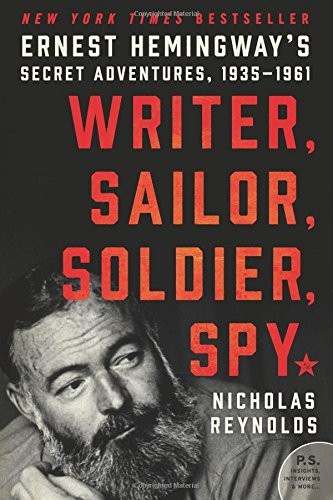Product desciption
Writer Sailor Soldier Spy Ernest Hemingways Secret Adventures 19351961 Reprint Nicholas Reynolds by Nicholas Reynolds 9780062440143, 0062440144 instant download after payment.
NEW YORK TIMES BESTSELLER • A "riveting"* international cloak-and-dagger epic, here is the stunning untold story of Ernest Hemingway's dangerous secret life -- including his role as a Soviet agent code-named "Argo" -- that fueled his art and his undoing. In 2010, while he was the historian at the esteemed CIA Museum, Nicholas Reynolds, a longtime American intelligence officer, former U.S. Marine colonel, and Oxford-trained historian, began to uncover clues suggesting Nobel Prize-winning novelist Ernest Hemingway was deeply involved in mid-twentieth-century spycraft -- a mysterious and shocking relationship that was far more complex, sustained, and fraught with risks than has ever been previously supposed. Now Reynolds's meticulously researched and captivating narrative, Writer, Sailor, Soldier, Spy, "looks among the shadows and finds a Hemingway not seen before" (London Review of Books), revealing for the first time the whole story of this hidden side of Hemingway's life: his troubling recruitment by Soviet spies to work with the NKVD, the forerunner to the KGB, followed in short order by a complex set of secret relationships with American agencies, including the FBI, the Department of State, the Office of Naval Intelligence (ONI), and the Office of Strategic Services (OSS), a precursor to the CIA. Starting with Hemingway's sympathy to antifascist forces during the 1930s, Reynolds illuminates Hemingway's immersion in the life-and-death world of the revolutionary left, from his passionate commitment to the Spanish Republic; his successful pursuit by Soviet NKVD agents, who valued Hemingway's influence, access, and mobility; his wartime meeting in East Asia with communist leader Chou En-Lai, the future premier of the People's Republic of China; and finally to his undercover involvement with Cuban rebels in the late 1950s and his sympathy for Fidel Castro. Reynolds equally explores Hemingway's participation in various roles as an agent for the United States government,


